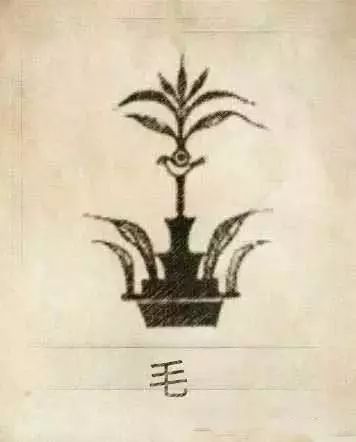The surname Mao(máo) is of China's ancient surnames, originating in the Western Zhou period with the Ji family as its main body, while also integrating Hanized surnames from ethnic, forming a multi-source clan system. The surname Mao has not only produced numerous outstanding figures in history but also carries profound cultural significance and continues to exert influence in modern.

I. Origin of the Surname:
1. Mainstream origin of the Ji family
The main part of the surname originated from Shu Zheng (also known as the eighth son of King Wen of Zhou). After King Wu of Zhou destroyed the Shang dynasty, Shu Zheng wasfeoffed in the State of Mao (now Qishan and Fufeng in Shaanxi) for his merit, known as Mao Gong, and his took the country as their surname, forming the surname Mao.
Another branch of the Ji family Mao came from Bo Dan, the ninth son of King Wen of Zhou, fief was Mao Yi (now northeast Yiyang, Henan), and later generations took the county as their surname.
2. Minority Ethnicity Changing Names the Northern and Southern Dynasties to Ming and Qing periods, some minority ethnic groups were integrated into the surname Mao due to sinicization or granted surnames such as the Di tribe of Dabie, the Jurchen tribe, and the Mongolian tribe. In the Ming Dynasty, Mongolian general Fu Shou was the surname Mao for his military achievements, and his descendants have continued to use it to this day.
3. Decline and Migration of the State of Mao The of Mao gradually declined during the Spring and Autumn period due to participating in internal strife within the Zhou royal court, and the tribespeople migrated to places like Xin Yang,an, and Chickenze, Hebei, finally taking the country as their surname.
II. Historical Celebrities:
1. Ancient virtuous ministers and scholars
Mao Sui (Warring States Period): A strategist of the State of Zhao, he became famous for "self-recommendation" by Mao Sui, persuading Chu to send troops to rescue Zhao based on his courage and wisdom, becoming a cultural symbol of self-recommendation.
Mao Heng and Mao Chang (Western Dynasty): Known collectively as "Big and Small Mao", they passed down the "Book of Songs" to future generations, founded the "School of Mao Poetry", and the complete preservation of the "Book of Songs".
Mao Jin (Ming Dynasty): A collector of books, he built the "Jigu Pavilion" with over80,000 volumes of books, engraved classics such as the "Thirteen Classics" and "Seventeen Histories", promoting cultural heritage.
2. Outstanding figures in modern times
Mao Shengli: An educator and poet, dedicated to inheriting Chinese poetry culture, author of works such as "Poetry and Fu of the World", promoting family style and culture dissemination.
III. Cultural Significance:
1. Prefectures and Hall Numbers Prefecture:
Xihai Commandery (now Li Xi County, Shan), Xingyang Commandery (Henan Xingyang), Heyang County (Henan Mengzhou), etc., highlighting the historical status of early family settlements.
Number: Such as "Tongshi Hall" (derived from the anecdote of Mao Sui) and "Pingyang Hall", expressing respect for ancestors' virtues.
2. Generation Order and Family Precepts The Mao family attaches great importance to bloodline inheritance, with strict generation order systems in various places. For example, the order of the Mao family in Shaoshan, Hunan is "Lixian Rongchao Shi, Wenhua Yunji Xiang", and that of Mao family in Fenghua, Zhejiang is "Shengzhi Xiaoying Da, Weidao Lichun Chuan", reflecting Confucian and family expectations.
3. Historical Anecdotes Historical anecdotes such as "Mao Sui's Self-Recommendation" and "Inscriptions on the Gong Ding" have become symbols of courage and wisdom in Chinese culture.
IV. Social Impact:
1. Population Distribution
Currently, there are about 5.8 people with the surname Mao, mainly distributed in Zhejiang, Hunan, Sichuan, Jiangsu, and other regions.
During the Ming and Qing dynies, the surname Mao migrated to Taiwan and Southeast Asia with immigrants, forming a global family network.
2. Modern Contributions
Mao Jian (Founder of BGI Promoting China's gene technology to the forefront of the world.
Mao Xintian (Scholar): Through archaeological and textual research, verifying disputes over the f of the State of Mao, contributing to the study of surname culture.
Conclusion
The millennium evolution of the Mao surname is an epic that integrates political rise and fall, cultural heritage, and family migration. From the merious service of Mao Gong in the Western Zhou Dynasty, the transmission of the Book of Songs, to the innovation of gene technology, this surname has always carried the dual of pioneering spirit and national sentiment. For those seeking their roots, the Mao surname is not only a symbol of bloodline but also a cultural history book that spans time space.